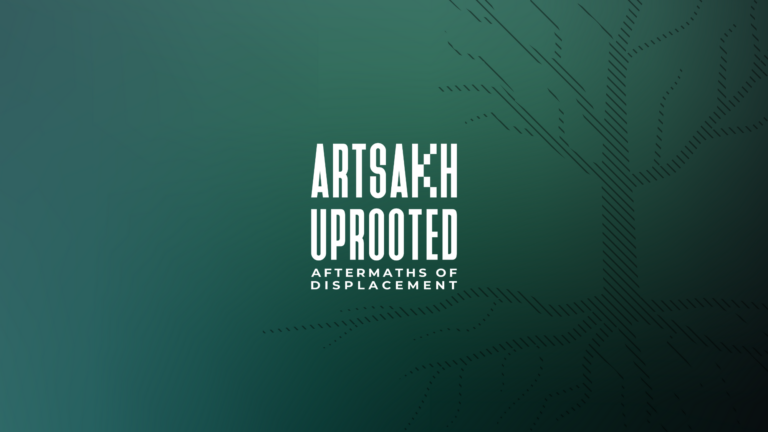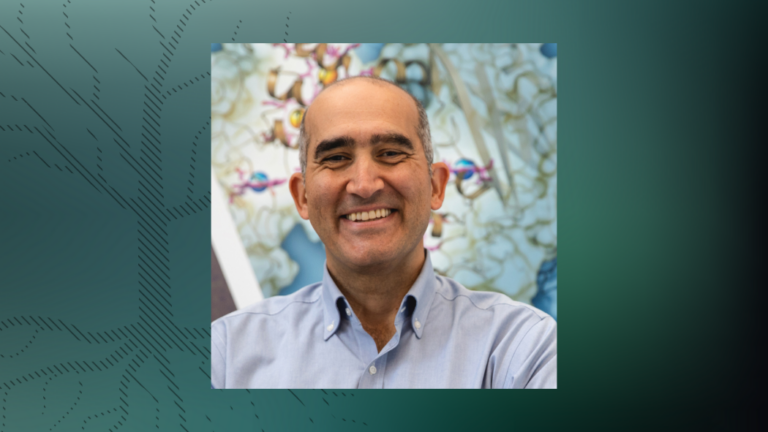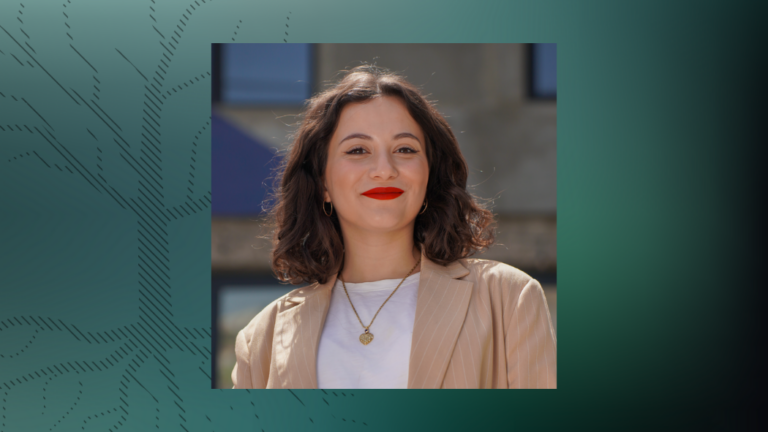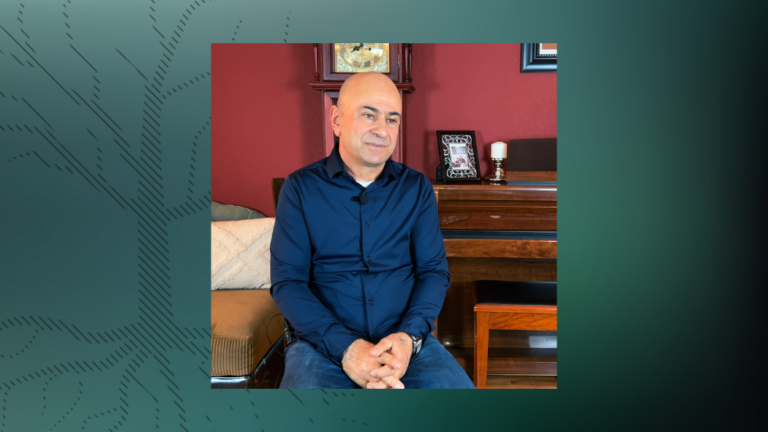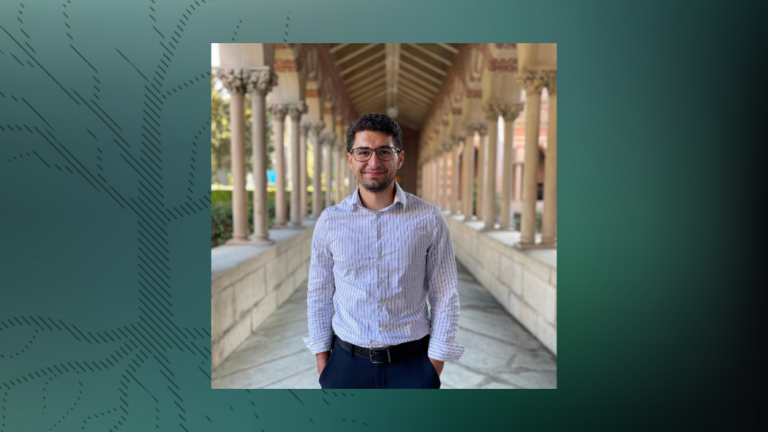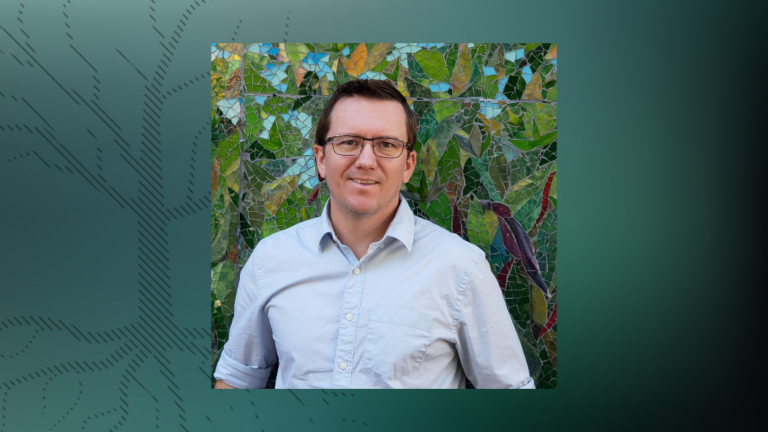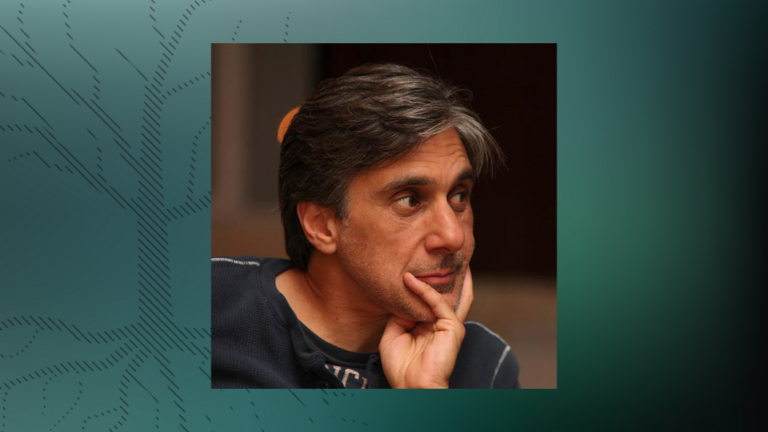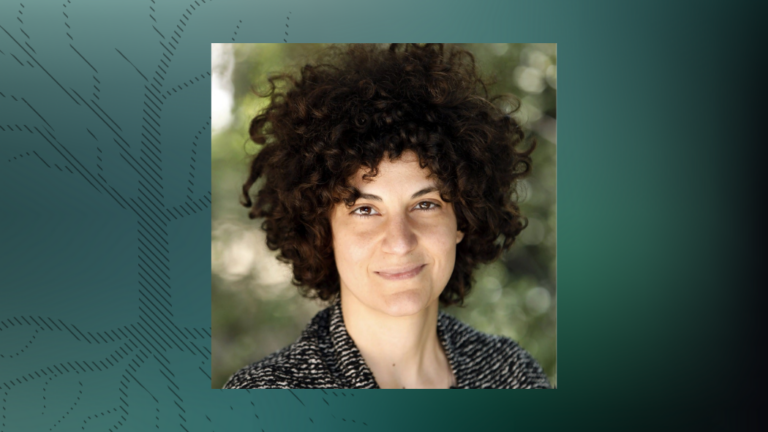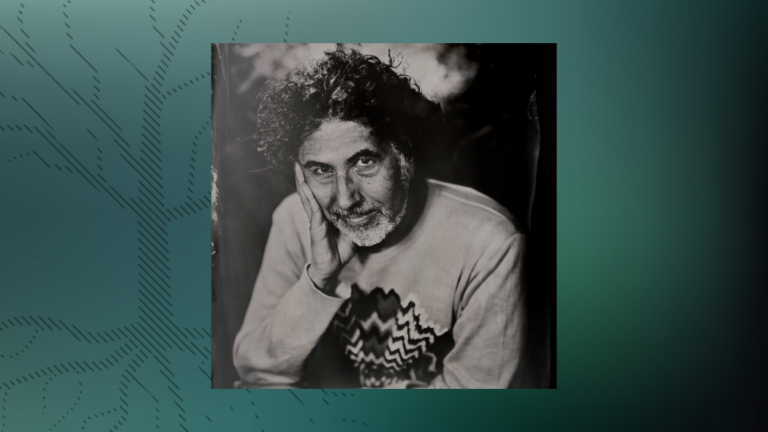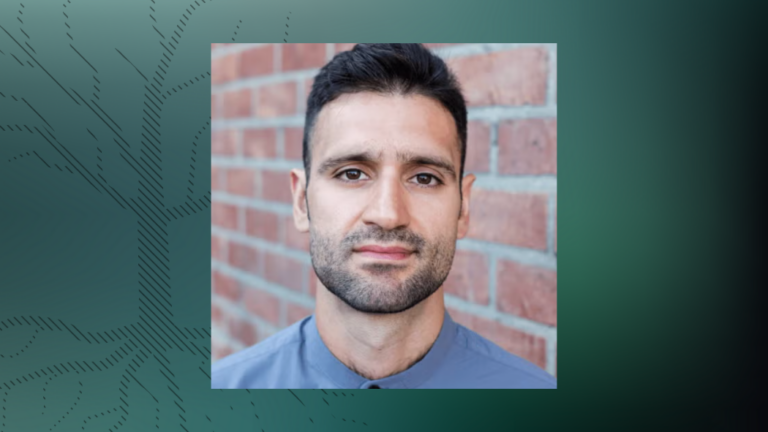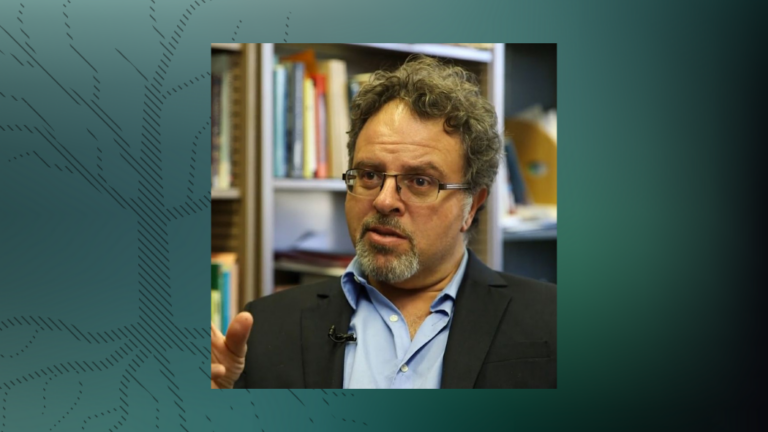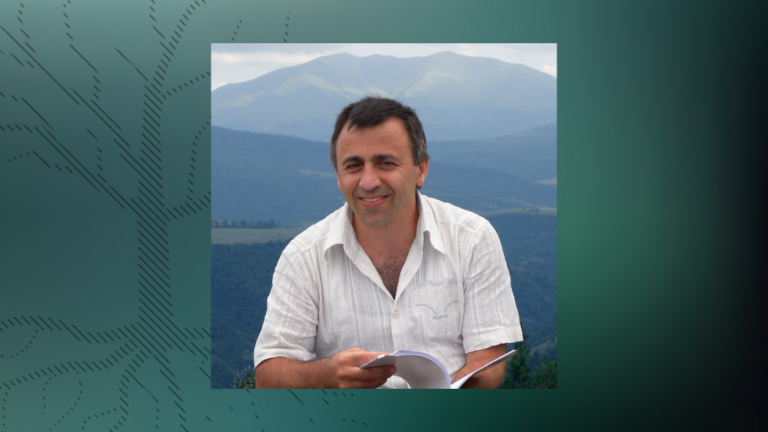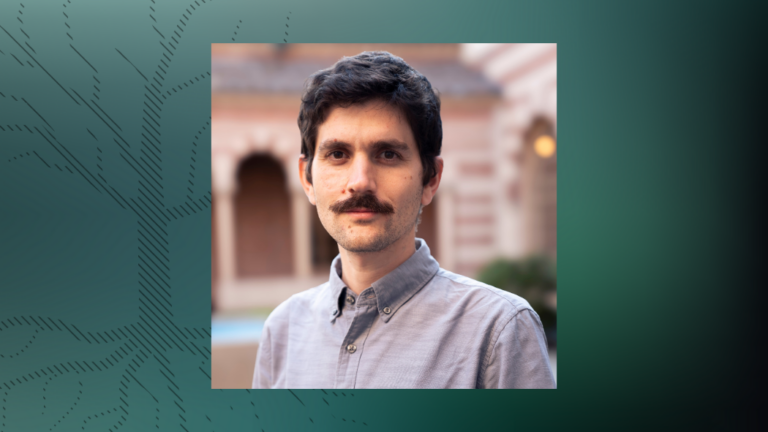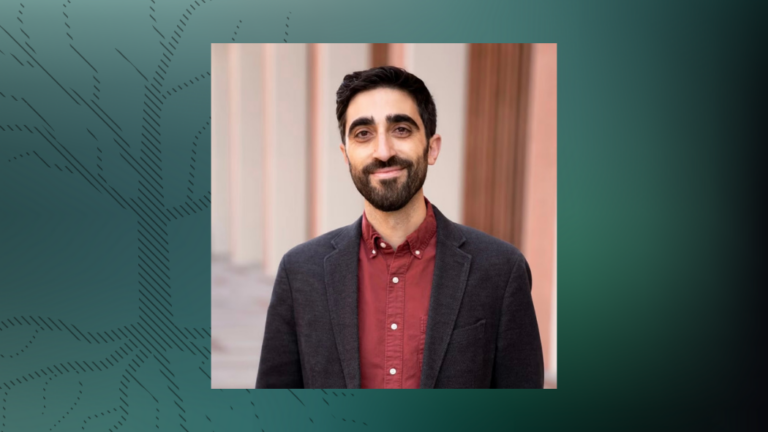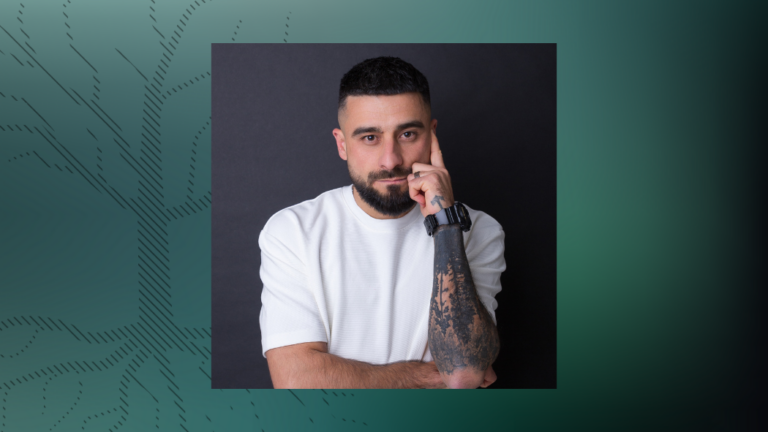10:00 AM – Welcome Remarks
Interim Dean of the USC Dornsife College of Letters, Arts, and Sciences
Dr. Mohamed El-Naggar
Mohamed El-Naggar is Interim Dean of USC Dornsife College of Letters, Arts, and Sciences, where he holds an appointment as Dean’s Professor of Physics and Astronomy and serves in a number of leadership and advisory roles at the university. He previously held the Robert D. Beyer Early Career Chair in Natural Sciences (2015-2021). El-Naggar served from 2021 to 2024 as Divisional Dean for the Physical Sciences and Mathematics at Dornsife, overseeing strategic planning, faculty appointments, and recruiting, and the advancement of research across the physical sciences and mathematics.
10:05 AM – Message from Director of the USC Institute of Armenian Studies
Director Dr. Shushan Karapetian
Dr. Shushan Karapetian
Shushan Karapetian is Director of the USC Dornsife Institute of Armenian Studies. She sets the vision for the Institute and leads research and scholarship initiatives, deepening integration with entities both on and off campus and expanding the scope of academic programming. She researches, teaches, and writes about the Armenian experience, focusing on competing ideologies at the intersection of language and the construction of transnational identity. Dr. Karapetian received a PhD in Near Eastern Languages and Cultures from UCLA, where she taught Armenian Studies courses for more than 10 years. She hosts the Institute’s flagship podcast “Language Therapy with Dr. K,” which explores language in the Armenian context.
10:15 AM – Video Explainer
A Snapshot of the Artsakh Conflict
10:20 AM – (Re)Starting Again
A Panel Discussion with Nina Shahverdyan, Ashot Gabrielyan and Shoushan Keshishian, Moderated by Margarita Baghdasaryan
Nina Shahverdyan
Nina Shahverdyan is an educator from Stepanakert, Artsakh. She obtained her BA in communications from the American University of Armenia and later worked as a teacher with Teach for Armenia in two villages in Artsakh. Her teaching career coincided with the blockade and ethnic cleansing of the region, and she documented the realities of Artsakh through her Instagram and the “Inadu” podcast. Nina is now pursuing her MA in International Educational Development at Columbia University in New York. Her area of focus is education in emergencies and conflict zones.
Ashot Gabrielyan
Ashot Gabrielyan is an educator from Artsakh, who taught in the village of Kolkhozashen through Teach for Armenia. During the Artsakh blockade, Gabrielyan shared stories from his everyday life, including his family’s struggles, his students’ experiences, and more. In the absence of English language news coming out of Artsakh, Gabrielyan’s social media provided essential information and updates to the world. Gabrielyan is currently the Education in Emergencies Project Manager at Teach for Armenia.
Shoushan Keshishyan
Shoushan is a specialist in post-war recovery and the founding director of Hub Artsakh. Originally from Beirut, Lebanon, Shoushan studied in the U.S., France, and U.K., before repatriating to Armenia through the iGorts program in September 2020. Witnessing the impact of the 44-day war firsthand motivated her to contribute to the rebuilding and development of Artsakh — she relocated to Stepanakert, where Hub Artsakh was born. As a co-working space and NGO, Hub Artsakh fostered a community of changemakers and implemented numerous development projects, all rooted in the organization’s mission to build human capital and resilience. Shoushan is also the co-founder of the Sunrise Stepanakert annual art festival, which took place in Artsakh every summer for the past four years, bringing together hundreds of artists, dozens of volunteers, and thousands of participants. Sunrise Stepanakert annually features an exhibition, concerts, film screenings, and workshops. Shoushan continued to lead Hub Artsakh during the blockade of Artsakh, the forced displacement of Armenians from Artsakh, and ultimately, the reopening of Hub Artsakh in Yerevan in October 2023. The mission of Hub Artsakh now is to empower Artsakh Armenians to overcome displacement by implementing sensitive and need-based development programs and voicing their issues, helping them rebuild their lives in Armenia. Currently based in Yerevan, Shoushan remains deeply committed to fostering cultural exchange and uplifting displaced communities. Her work reflects her passion for art, social change, and creating a positive impact in Armenia.
Margarita Baghdasaryan
Margarita Baghdasaryan is Associate Director of the USC Dornsife Institute of Armenian Studies, where she oversees the Institute’s global communication efforts and manages the USC Tacori Center in Armenia. She holds an MS in Political Sociology from the London School of Economics and Political Science and a BA in Political Science and Middle Eastern Studies from UCLA. In addition to her multidisciplinary academic background, Baghdasaryan brings years of work experience in government, advocacy, and nonprofit management.
10:50 AM – Artsakh
An Animated Flipbook by Karén Karslyan, Introduced by Dr. Lilit Keshishyan
Karén Karslyan
Karén Karslyan is a poet, visual artist, and translator. He earned his PhD in English from Armenia’s National Academy of Sciences. Dr. Karslyan is the author of the following Armenian-language books: On the Tip of the Tongue («Լեզվի ծայրին»), a poetry collection (Granish, 2022); The Regime Is In Panic («Ռեժիմը խուճապի մեջ է»), a play (Actual Art, 2019, staged by Tech Degh); Aterazma («Ատերազմա»), a typographic film-novel, the first book of conceptual writing in Eastern Armenian (Inknagir, 2016); Doomed to Spell («Գրողի ծոցը»), a poetry collection (Inknagir, 2010); X Frames/Sec («X կադր/վայրկյան»), collected works (Bnagir, 2003). Dr. Karslyan is the chairman of the Writers for Peace Committee of PEN Armenia.
Lilit Keshishyan
Lilit Keshishyan is a Project Director at the USC Dornsife Institute of Armenian Studies and lecturer in the writing program at USC. She directs the Institute’s “California History Through Armenian Experiences” oral history project and also works on various aspects of the Digital Diaspora initiative. Dr. Keshishyan holds a PhD in Comparative Literature from UCLA, where she taught comparative literature and writing courses for more than 10 years. Her academic work has explored the intricacies and challenges posed by issues of identity, language, and place in the literature of the Armenian diaspora.
10:55 AM – The Long Road to Catastrophe
A Lecture by Dr. Stephan Astourian, Introduced by Gegham Mughnetsyan
Dr. Stephan Astourian
Stephan Astourian is Director of the Turpanjian Institute of Social Sciences and a professor in the College of Humanities and Social Sciences at the American University of Armenia. He earned his PhD from UCLA under the late Richard Hovannisian. Along with his expertise in the history and politics of the modern Caucasus and the Middle East, Dr. Astourian received substantial training in both France and the U.S. in diplomatic history, political psychology (as it pertains to leaders, decision-making, and international relations more broadly), crisis management, and conflict resolution. He has published extensively on topics related to modern Armenian, Turkish, and Azerbaijani history and politics.
Gegham Mughnetsyan
Gegham Mughnetsyan is the Chitjian Researcher Archivist at the USC Dornsife Institute of Armenian Studies, where he works with Armenian diaspora archives and leads the Displaced Persons Oral History and Documentation Project. Gegham also produces content for the Institute’s social media platforms and works on expanding the digital archival collections. He received his MA in International Affairs from American University and his BA in Peace and Conflict Studies from UC Berkeley, where his research focused on Nagorno-Karabakh.
11:25 AM – Severed from the Grave
An Oral History by Stepan Bagmanyan
Stepan Bagmanyan
Stepan (Steve) Bagmanyan is the Instrument Repair Supervisor at the Los Angeles Unified School District. He was featured in the Academy Award-winning documentary The Last Repair Shop, in which he shared his family story as refugees from Baku, Azerbaijan. Bagmanyan as part of its “California History Through Armenian Experiences” oral history project.
11:30 AM – Intergenerational Resilience Amidst Collective Trauma
A Panel Discussion with Arman Dzhragatspanyan, Dr. Shushan Karapetian, Dr. Frank Manis, and Dr. Clayton Stephenson, Moderated by Dr. Valentina Ogaryan
Arman Dzhragatspanyan
Arman Dzhragatspanyan is a psychology researcher. He received his BA in Health and Human Sciences from USC in 2022, where he initiated the trauma and resilience study following the 2020 Artsakh War. After graduating from USC, he moved to Armenia to pursue an MA in Political Science and International Affairs at the American University of Armenia. He plans to pursue a PhD in Clinical Psychology, specializing in Neuropsychology. His future research will seek to understand further the neural and microbiological mechanisms underlying thoughts and emotions and the relationship between gut microbiota and the development of Alzheimer’s disease.
Dr. Shushan Karapetian
Shushan Karapetian is Director of the USC Dornsife Institute of Armenian Studies. She sets the vision for the Institute and leads research and scholarship initiatives, deepening integration with entities both on and off campus and expanding the scope of academic programming. She researches, teaches, and writes about the Armenian experience, focusing on competing ideologies at the intersection of language and the construction of transnational identity. Dr. Karapetian received a PhD in Near Eastern Languages and Cultures from UCLA, where she taught Armenian Studies courses for more than 10 years. She hosts the Institute’s flagship podcast “Language Therapy with Dr. K,” which explores language in the Armenian context.
Dr. Frank Manis
Frank Manis is Professor Emeritus of Psychology at USC. He has published more than 55 peer-reviewed articles, eight chapters and one edited book on the psychology and neuroscience of dyslexia and reading disabilities. He was funded for several years by the National Institute of Child Health and Human Development to study reading in children and adults with dyslexia, and to co-conduct a nine-year longitudinal study of literacy development in Spanish-speaking children. He served as a Distinguished Fellow of the USC Center for Excellence in Teaching, and received the Raubenheimer Outstanding Faculty Award at USC in 2011. His paternal grandfather was Dikran Manissedjian, who emigrated to the U.S. before 1915, and his paternal grandmother was Asnive Manissedjian (neé Egavian), who was a genocide survivor who emigrated to the U.S. in 1918.
Dr. Clayton Stephenson
Clayton Stephenson is Associate Professor at USC and Director of Undergraduate Studies for the Department of Psychology. He earned his PhD in Psychology from Claremont Graduate University with an emphasis in cognitive psychology and quantitative and qualitative research methods. Dr. Stephenson’s expertise focuses on the relationship between working memory and intelligence, sex comparisons in cognitive abilities, and evidence-based principles of learning. Dr. Stephenson was President of the Rocky Mountain Psychological Association for the 2023-2024 academic year and continues as the Past-President and the Teaching Conference Coordinator for the 2024-2025 academic year.
Dr. Valentina Ogaryan
Dr. Valentina Ogaryan is a licensed clinical psychologist and Clinical Director at the UCLA Simms/Mann Center for Integrative Oncology. She oversees clinical programming and clinical staff providing direct psychosocial care to patients and families impacted by a cancer diagnosis. Dr. Ogaryan has extensive clinical experience in providing direct care to individuals experiencing and navigating grief, chronic illness, and adjustment to significant life stressors. Dr. Ogaryan has spoken and written in academic and nonacademic outlets on the intricacies of psychosocial impacts of cancer, as well as ways to support individuals coping with treatment and survivorship.
12:00 PM – What Can I Tell You? We Lost Everything
A Film by Ara Oshagan and Micheline Aharonian Marcom
Ara Oshagan
Ara Oshagan is a diasporic multi-disciplinary artist and curator whose practice explores collective and personal histories of dispossession, legacies of violence, identity and (un)imagined futures. He has presented his work at the Annenberg Space for Photography, International Center of Photography in New York, and TedX Yerevan, and has had solo exhibitions in Los Angeles, New York, Boston, Armenia, Morocco, and South Korea. His work has been featured on NPR, LA Times, Hyperallergic, Mother Jones and Art Papers. Based in Los Angeles, Oshagan is an Artist-in-Residence at the 18th Street Art Center in Santa Monica and a curator at the City of Glendale ReflectSpace Gallery.
Micheline Aharonian Marcom
Micheline Aharonian Marcom is Director and Professor of Creative Writing at the University of Virginia. She has published eight books, including a trilogy of novels about the Armenian Genocide and its aftermath in the 20th century. She has received fellowships and awards from the Lannan Foundation, the Whiting Foundation, the US Artists’ Foundation, and in 2022 she was a finalist for the Neustadt International Prize for Literature. Her first novel, Three Apples Fell From Heaven, was a New York Times Notable Book and runner-up for the PEN/Hemingway Award for First Fiction. Her second novel, The Daydreaming Boy, won the PEN/USA Award for Fiction. Marcom founded and co-directs the digital oral history project, The New American Story Project.
12:05 PM – From Conflict Zone to Campus
The University and Human Rights: A Panel Discussion with Hannah Garry and Steve Swerdlow, Moderated by Maral Tavitian
Hannah Garry
Hannah Garry, Esq. is Professor from Practice and Executive Director of The Promise Institute for Human Rights at UCLA Law. She is an internationally-recognized legal scholar, teacher and advocate with more than 25 years’ experience, spanning more than 25 countries, in human rights, international criminal law, international refugee law, and transitional justice, and has held prior faculty appointments at USC Law and University of Colorado Law. She received her JD from UC Berkeley School of Law.
Steve Swerdlow
Steve Swerdlow, Esq. is a human rights lawyer and Associate Professor of the Practice of Human Rights in the Department of Political and International Relations at USC. An expert on the former Soviet region, Swerdlow teaches international human rights law, human rights research and advocacy, and human rights across Eurasia. Swerdlow has been a visiting professor at the American University of Central Asia in Bishkek, Kyrgyzstan, Webster University in Tashkent, Uzbekistan, and the University of San Diego. He received his JD from UC Berkeley School of Law.
Maral Tavitian
Maral Tavitian is Managing Director of the USC Dornsife Institute of Armenian Studies. She works with the Director to manage all aspects of program operations and develop a long-term strategy for the Institute’s growth and impact. Tavitian earned a BA in Journalism from USC’s Annenberg School for Communication and Journalism and a JD from USC Gould School of Law. She graduated as Annenberg’s Outstanding Print and Digital Journalism Scholar, and was one of 10 students in USC’s graduating class to receive the Renaissance Scholar Prize for exceptional scholarship in diverse fields of study. She previously worked in Armenia as a journalist for the media platform CivilNet, where she launched and hosted its flagship news program, “The Week in Armenia.”
12:30 PM – Roots Across Diasporan Time
A Performance Lecture by Dr. Aroussiak Gabrielian and Hrag Vartanian
Dr. Aroussiak Gabrielian
Aroussiak Gabrielian is Assistant Professor of Landscape Architecture and Urbanism at the USC School of Architecture and Affiliate Faculty of Media Arts and Practice at the USC School of Cinematic Arts. She recently launched and directs the Landscape Futures Lab, which serves as a design-research incubator for climate innovation and imagination. Her scholarship focuses on both materialist perspectives on the living world of landscape matter, and the practice of imaging and imagining landscape, addressing both landscape’s material and its representation. Dr. Gabrielian holds a dual masters in Architecture and Landscape Architecture from the University of Pennsylvania, and a PhD in Media Arts and Practice from the USC School of Cinematic Arts.
Hrag Vartanian
Hrag Vartanian is an art critic, artist, curator, and lecturer on contemporary art with an expertise in the intersection of art and politics. He is editor-in-chief and co-founder of Hyperallergic, which he co-founded with his partner Veken Gueyikian in response to changes in the art world and media industry. In 2021, he edited a special dossier on Artsakh, titled “Artsakh: Cultural Heritage Under Threat,” that featured writing by leading thinkers and reporters in the field. Vartanian’s work has helped to shift the field of art writing and criticism by championing straightforward online reporting that asserts the power of journalism to inform public debate, while retaining a sensitivity to the cultural and economic realities that inform the world of art, culture, and politics.
Raffi Wartanian
Raffi Joe Wartanian is a writer, musician, and educator who teaches writing at UCLA and serves as the inaugural Poet Laureate in the City of Glendale. His essays have appeared in The New York Times, Los Angeles Review of Books, University of Texas Press, Miami Herald, The Baltimore Sun, Lapham’s Quarterly, Outside Magazine, and elsewhere; and his poetry has appeared in The Los Angeles Press, No Dear Magazine, The Poetry Lighthouse, Armenian Poetry Project, LAdige, Ararat Magazine, and beyond. Raffi has taught writing to veterans at the Manhattan VA, incarcerated writers at Rikers Island, youth in Armenia, and undergraduates at Columbia University, where he earned an MFA in Writing. As a musician, Raffi has released two albums of original compositions: Critical Distance and Pushkin Street.
Armen Adamian
Armen Adamian is a PhD student in Ethnomusicology at UCLA. His research investigates the politics of music making among Armenians and the involvement of musical and choreographic discourses in the production of geopolitical and national narratives. Alongside his academic studies, Armen practices duduk and leads Lernazang, an Armenian folk ensemble in Los Angeles. He received his MA in Ethnomusicology from UCLA, a BA in Psychology and a BA in Music Composition from Humboldt State University.
1:00 PM – Lunch
The Kitchen as Archive (Founders Park)
A Cooking Demonstration by Zhengyalov Hatz.
Collective Voices (Founders Park): A Community Poetry Project by Raffi Wartanian
Created by Raffie Joe Wartanian, the Collective Voices Community Poetry Project will gather writing from interested community members and combine them into an archive from today’s event. Guests are invited to contribute reflections and drawings in any language.
2:30 PM – My Dearest Artsakh
A Documentary Premiere by Balin Schneider
Balin Schneider
Balin Schneider is a director and producer based in Los Angeles. Schneider obtained his MA from USC in Specialized Journalism with an emphasis on International Reporting. His first feature film, Out of Time: The Material Issue Story, is now out on Amazon Prime Video. He previously worked in broadcast journalism where he won a KAB Award for reporting and interviewing former Sec. of State Mike Pompeo. Schneider has written for LAist, The 74, and his work has been featured in Forbes, Axios, Brooklyn Vegan and Pitchfork. He is currently executive director of documentary studio arvonia films. His short documentary, My Dearest Artsakh, follows a displaced teenager from Artsakh, who grapples with feelings of loss, her new life and coming of age.
2:50 PM – Narrative Resistance
A Conversation between Dr. Viet Thanh Nguyen and Eric Nazarian
Dr. Viet Thanh Nguyen
Viet Thanh Nguyen is Aerol Arnold Chair of English and Professor of English, Comparative Literature, and American Studies and Ethnicity at USC. Nguyen’s novel The Sympathizer is a New York Times best seller and won the Pulitzer Prize for Fiction. He is also the author of Race and Resistance: Literature and Politics in Asian America (Oxford University Press, 2002) and the co-editor of Transpacific Studies: Framing an Emerging Field (University of Hawaii Press, 2014). He is a MacArthur Fellow (2018-2022), a fellow of the American Academy of Arts and Sciences, and a Guggenheim Fellow (2017-2018). He has also been a fellow of the American Council of Learned Societies (2011-2012), the Radcliffe Institute for Advanced Study at Harvard (2008-2009) and the Fine Arts Work Center (2004-2005).
Eric Nazarian
Eric Nazarian is a filmmaker and screenwriter based in Los Angeles. He is a graduate of USC’s School of Cinematic Arts and the recipient of the Nicholl Fellowship in Screenwriting from the Academy of Motion Picture Arts & Sciences for his screenplay, Giants. Currently, he is in post-production on Die Like a Man, a rite of passage feature film about the aftereffects of gun violence in a gentrifying Westside neighborhood in LA. While making the film, Nazarian created a social impact audiovisual literacy program with the aim of combating gun violence in at-risk communities through grassroots filmmaking.
3:15 PM – From Rights to Responsibilities: Victim Agency in Rerooting Artsakh
A Presentation by Dr. Simon Maghakyan
Dr. Simon Maghakyan
Described as “relentless” by the Los Angeles Times, Simon Maghakyan is a political scientist who researches heritage and security. He is the 20th Kazan Visiting Professor in Armenian Studies at California State University, Fresno, a Community Scholar at the University of Denver’s Korbel School of International Studies, and a Postdoctoral Fellow at the University of Oxford. He earned a PhD from Cranfield University in Defense and Security, focusing on heritage crime. His investigative writing has been cited at the UN Security Council and the International Court of Justice, and his analyses have been featured by the BBC, Le Monde, The Sunday Times, The Wall Street Journal, The Washington Post, and Time. Dr. Maghakyan is the author of Sovereign Heritage Crime: Security, Autocracy, and the Material Past, forthcoming from Cambridge University Press.
3:25 PM – Nation Building on Forged Foundations: The Caucasian Albanian Narrative
A Conversation between Dr. Sebouh Aslanian and Dr. Artyom Tonoyan
Dr. Sebouh Aslanian
Dr. Artyom Tonoyan
A native of Gyumri, Armenia, Artyom Tonoyan is a sociologist and Visiting Professor of Global Studies at Hamline University, in St. Paul, Minnesota. His research interests include sociology of religion, religion and politics in the South Caucasus, and religion and nationalism in post-Soviet Russia. Dr. Tonoyan’s articles have appeared in Demokratizatsiva: The Journal of Post-Soviet Democratization, Society, and Modern Greek Studies Yearbook, among others. He has been a frequent guest on the BBC, Deutsche Welle, France 24, and other outlets. He is the editor of the recently published volume, Black Garden Aflame: The Nagorno-Karabakh Conflict in the Soviet and Russian Press.
3:50 PM – The Exodus
A Digital Photo Exhibition by Alexis Pazoumian
Alexis Pazoumian
Alexis Pazoumian is a French-Armenian photographer and filmmaker whose work focuses on social and documentary subjects. His approach highlights communities living on the margins of society. From Armenia to the United States, and more recently Siberia, notions of humanity, identity, and society are central to his work. Pazoumian is the author of two books published by Éditions André Frère: Faubourg Treme (2018) and Sacha (2020). In 2020, with the support of Arte, he directed a documentary on Nagorno-Karabakh. In 2022, he released the short film Bellus in collaboration with Canal+. His first feature-length documentary, Jardin Noir, was broadcast on France Télévisions in summer 2024.
3:50 PM – Dialects (Up)rooted: Language as Witness
A Panel Discussion with Dr. Hrach Martirosyan and Lika Zakaryan, Moderated by Dr. Shushan Karapetian
Dr. Hrach Martirosyan
Hrach Martirosyan is a linguist specialized in comparative studies. He is a guest lecturer at Leiden University in the Netherlands in the field of Classical Armenian from an Indo-European perspective, where he also conducts etymological research on native Armenian vocabulary. He held a postdoc at the Institute of Iranian Studies of the Austrian Academy of Sciences in Vienna, investigating Armenian personal names of Iranian origin. He was also a lecturer in Eastern Armenian in the department of Near Eastern Languages and Cultures at UCLA. His dissertation “Etymological Dictionary of the Armenian Inherited Lexicon,” forthcoming from Brill (c. 1000 pp.), forms part of the larger project to compile an Indo-European Etymological Dictionary.
Lika Zakaryan
Lika (Anzhelika) Zakaryan is a journalist and author from Stepanakert, Artsakh. She studied at the Department of Political Science at Artsakh State University, focusing on conflict management and peace-building. While working as a journalist for the Armenian outlet CivilNet during the 2020 Artsakh War, she authored a personal diary from inside a bomb shelter. In 2021, the journal was published in book form as 44 Days: Diary from an Invisible War, and subsequently made into a documentary film called Invisible Republic. Lika currently hosts the podcast series Muklimandil for CivilNet, in which she conducts interviews and collects human stories in the Artsakh Armenian dialect.
Dr. Shushan Karapetian
Shushan Karapetian is Director of the USC Dornsife Institute of Armenian Studies. She sets the vision for the Institute and leads research and scholarship initiatives, deepening integration with entities both on and off campus and expanding the scope of academic programming. She researches, teaches, and writes about the Armenian experience, focusing on competing ideologies at the intersection of language and the construction of transnational identity. Dr. Karapetian received a PhD in Near Eastern Languages and Cultures from UCLA, where she taught Armenian Studies courses for more than 10 years. She hosts the Institute’s flagship podcast “Language Therapy with Dr. K,” which explores language in the Armenian context.
4:20 PM – The Turkish Factor (Again): Experiences and Reverberations
An interview with Dr. Hrag Papazian conducted by Manuk Avedikyan
Dr. Hrag Papazian
Hrag Papazian is Assistant Professor of Anthropology and the Turpanjian Early Career Chair in Armenian Studies at USC. He is a sociocultural anthropologist researching Armenians in contemporary Turkey. Examining various Armenian factions, including Christian Armenian and Muslim Armenian citizens of Turkey, as well as labor migrants from the Republic of Armenia, his work studies intra-Armenian diversity, relations, and boundaries. Dr. Papazian received his DPhil in Anthropology from the University of Oxford. He was previously an Assistant Professor at the American University of Armenia and held postdoctoral and visiting positions at UCLA, the California State University, Fresno, and the University of Cambridge.
Manuk Avedikyan
Manuk Avedikyan is Project Manager at the USC Dornsife Institute of Armenian Studies, where he works on the “California History through Armenian Experiences” oral history project and does outreach for My Armenian Story. He previously managed the Armenian Genocide survivor oral history collections at the USC Shoah Foundation for more than seven years. Avedikyan holds an MA in Political Science and International Affairs from the American University of Armenia, focusing on non-Muslim minority issues and reforms in modern-day Turkey. He has a BA in History from California State University, Northridge.
4:45 PM – There Was, There Was Not
A Film Trailer by Emily Mkrtichian
Emily Mkrtichian
Emily Mkrtichian is a filmmaker, multimedia artist, and interdisciplinary creative collaborator. Her artistic practice reflects her upbringing in a displaced, diasporic family, and explores personal, alternative archives of places and people, especially from the SWANA region, and a deep commitment to the healing power of relational, ethical, collaborative storytelling. Her multimedia Installation, Luys i Luso, made in collaboration with Tigran Hamasyan, has been exhibited in museums, concert halls, and public spaces around the world. Mkrtichian has been a Flaherty Seminar Fellow, an LA Public Arts Activation Fund recipient, A Locarno Film Festival Open Doors grant winner, a UnionDocs Summer Lab Fellow, a Torino Film Lab Fellow, and a resident at the Yerevan Institute of Contemporary Art.
4:47 PM – Black Garden
A Film Trailer by Alexis Pazoumian
Alexis Pazoumian
Alexis Pazoumian is a French-Armenian photographer and filmmaker whose work focuses on social and documentary subjects. His approach highlights communities living on the margins of society. From Armenia to the United States, and more recently Siberia, notions of humanity, identity, and society are central to his work. Pazoumian is the author of two books published by Éditions André Frère: Faubourg Treme (2018) and Sacha (2020). In 2020, with the support of Arte, he directed a documentary on Nagorno-Karabakh. In 2022, he released the short film Bellus in collaboration with Canal+. His first feature-length documentary, Jardin Noir, was broadcast on France Télévisions in summer 2024.
4:50 PM – Documenting a Neglected Conflict
A Panel Discussion with Emily Mkrtichian and Alexis Pazoumian, Moderated by Ted Braun

Emily Mkrtichian
Emily Mkrtichian is a filmmaker, multimedia artist, and interdisciplinary creative collaborator. Her artistic practice reflects her upbringing in a displaced, diasporic family, and explores personal, alternative archives of places and people, especially from the SWANA region, and a deep commitment to the healing power of relational, ethical, collaborative storytelling. Her multimedia Installation, Luys i Luso, made in collaboration with Tigran Hamasyan, has been exhibited in museums, concert halls, and public spaces around the world. Mkrtichian has been a Flaherty Seminar Fellow, an LA Public Arts Activation Fund recipient, A Locarno Film Festival Open Doors grant winner, a UnionDocs Summer Lab Fellow, a Torino Film Lab Fellow, and a resident at the Yerevan Institute of Contemporary Art.

Alexis Pazoumian
Alexis Pazoumian is a French-Armenian photographer and filmmaker whose work focuses on social and documentary subjects. His approach highlights communities living on the margins of society. From Armenia to the United States, and more recently Siberia, notions of humanity, identity, and society are central to his work. Pazoumian is the author of two books published by Éditions André Frère: Faubourg Treme (2018) and Sacha (2020). In 2020, with the support of Arte, he directed a documentary on Nagorno-Karabakh. In 2022, he released the short film Bellus in collaboration with Canal+. His first feature-length documentary, Jardin Noir, was broadcast on France Télévisions in summer 2024.

Ted Braun
Ted Braun is a writer-director, Professor of Cinematic Arts and the Joseph Campbell Endowed Chair in Cinematic Ethics at USC. He works in non-fiction across documentary and scripted forms with a focus on global conflict. He is best known for his feature documentaries Darfur Now (2007), Betting on Zero (2017), and ¡Viva Maestro! (2022). Braun’s students have won or been nominated for some of the most prestigious cinema and television prizes: Academy Awards, the Palme d’Or, Emmys, Sundance Festival Awards, and European Media Prizes. In their April 2018 Report on the Best Film Schools, Variety named him one of world’s 10 Top Teachers in Film and TV.
5:15 PM – What’s Next? How Do We Stop “Never Again” from Failing Again?
A Presentation by Dr. Artak Beglaryan
Dr. Artak Beglaryan
Artak Beglaryan is president of the newly-established “Union for the Protection of the Interests and Rights of the Artsakh People” NGO. After losing his eyesight at the age of six from a landmine explosion in Stepanakert, Artsakh, Dr. Beglaryan went on to receive masters degrees from University College London and Tufts University, and a PhD from the National Defense Research University of Armenia. Previously, Dr. Beglaryan held several high-ranking positions in the Artsakh government, including as Human Rights Ombudsman from 2018 to 2020 and Chief of Presidential Staff from 2020 to 2021. In 2021-2022, he served as State Minister, the second highest position in the government, coordinating the activities of humanitarian ministries.
5:30 PM – Music In and Out of Place
An Introduction to Lyoka by USC Vice Provost for the Arts Dr. Josh Kun
Dr. Josh Kun
Josh Kun is a cultural historian, author, curator, and MacArthur Fellow. He is Vice Provost for the Arts at USC, where he is a Professor and Chair of Cross-Cultural Communication in the USC Annenberg School for Communication and Journalism. His books include Audiotopia: Music, Race, and America, The Tide Was Always High: The Music of Latin America in Los Angeles, Songs in the Key of Los Angeles, and others. His curatorial and artistic projects have appeared with Getty, Prospect New Orleans, Grammy Museum, SFMOMA, California African American Museum, the Los Angeles Public Library, and more. He has been the recipient of a Berlin Prize and an American Book Award. He is currently writing a book on music and migration in the 21st century for MCD/FSG.
5:35 PM I’m Still Here
A Rap Performance by Lyoka
Lyoka
Lyoka (Valeri Ghazaryan) is a rapper and war veteran from Artsakh with a prosthetic leg. Like many others from Artsakh, he and his family have been displaced several times, an experience that serves as a major inspiration for his music. Lyoka’s song “Tun tareq” (Take Me Home) about his relationship to dispossession and longing for home, has garnered more than 5 million views on YouTube. For more than a decade, Lyoka has been producing rap, and was one of the first to develop this musical direction in Artsakh. His works are based on the stories of his life and family, and through his bold and sincere songs, he shares his most personal feelings. Currently, Lyoka is working on his debut album “Life,” from which one song, “The Road of Childhood,” was recently released.
5:55 PM – An Institute with Living Impact
Closing Remarks by USC Dornsife Divisional Dean for the Social Sciences Dr. William Deverell
Dr. William Deverell
William Deverell is Divisional Dean for the Social Sciences at the USC Dornsife College of Letters, Arts, and Sciences. He is a historian of the American West and Co-Director of The Huntington-USC Institute on California and the West. Dr. Deverell received his BA in American Studies from Stanford University and his MA and PhD in United States history from Princeton University. He has written widely on the history and culture of the 19th and 20th century American West.
